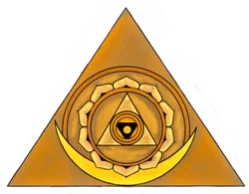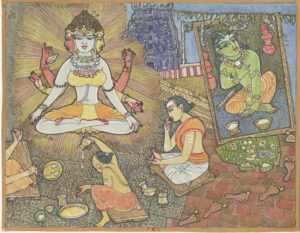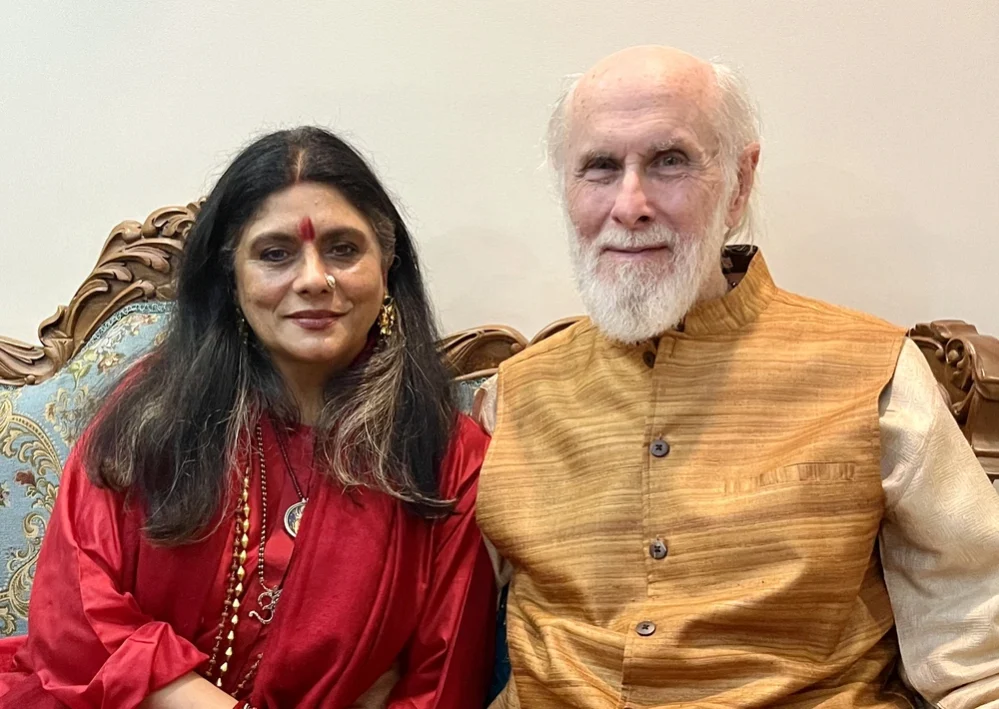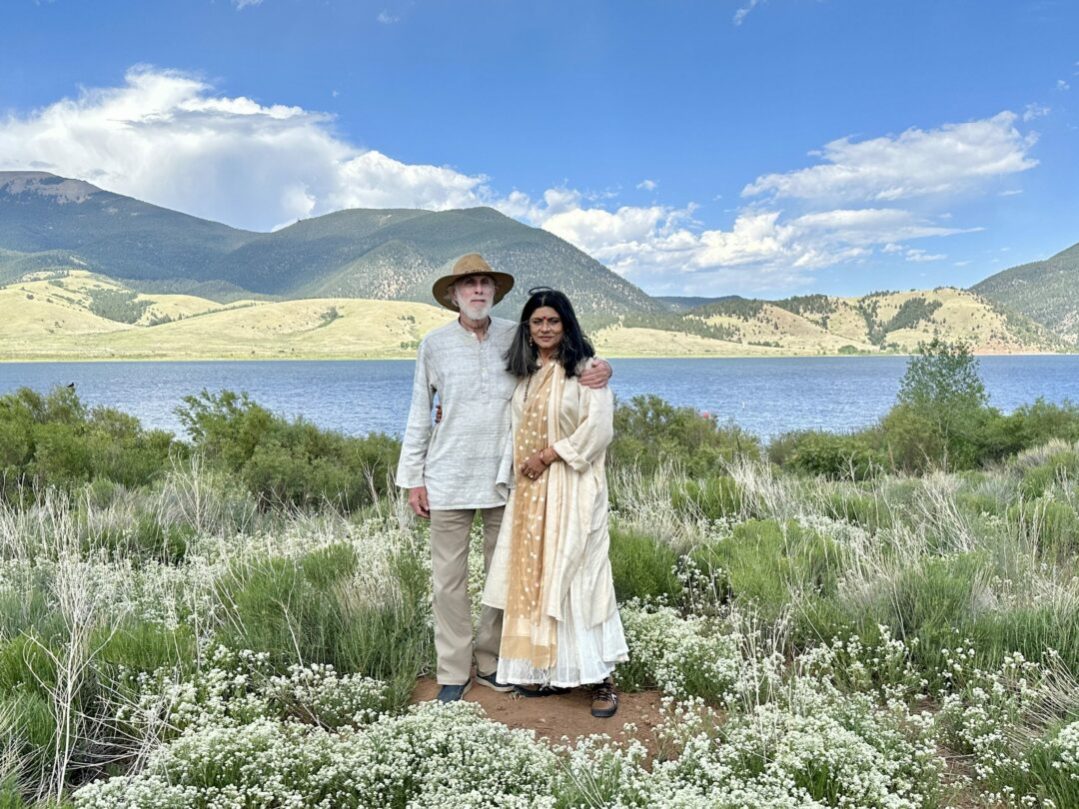Integrative medicine is one of the most important and dynamic new movements in modern health care that is rapidly becoming accepted throughout the world. Integrative medicine seeks to integrate traditional and complementary healing approaches along with modern medical therapies, affording it a vast scope of practice and recommendations.
Integrative medicine may combine modern medicine with such diverse disciplines as naturopathy, nutrition, chiropractic, Chinese medicine, herbal medicine or massage, and from our Vedic standpoint also Yoga and Ayurveda.
Integrative medicine recognizes that there is value in many different healing approaches and that each has its appropriate and helpful role in optimal health care. It regards that certain approaches may be better to treat certain diseases. In this context it is recognized that modern medicine is particularly good at treating acute conditions and injuries that are best respond to surgery and drugs. Traditional medicine and adjunct healing approaches are regarded as more helpful with chronic diseases and wellness therapies, but have an additional dimension of improving longevity and helping us access a higher energy and consciousness.
Integrative medicine recognizes the importance of behavior and lifestyle therapies that are better examined or prescribed in traditional healing systems. It looks towards positive health, disease prevention and longevity, not just the treatment of disease. This integrative view can bring in yoga asanas, pranayama and meditation, or Ayurvedic constitutional measures for doshic balancing. The integrative medical center can function like a community health care center, offering education, not just treatments.
Importance of Integral Healing
Integrative medicine mainly refers to an integration of healing disciplines and medical practices. Yet there is another aspect of integration in health care that should be considered carefully as well. This is what I would call “integral healing”.
Integral healing is not focused merely on integrating different healing disciplines, though it may do this to some degree. Integral healing is about an integral approach to the human being and providing health and well-being on all levels of our nature and in regard to all aspects of our behavior and awareness. These include body, prana, senses, mind and consciousness, our relationship with both our human and natural environments, and the different levels of the cosmos from the material world to realms of pure awareness. It helps us achieve all our goals of life of physical and mental health, relationship, career, creativity and spirituality.
Integral healing prescribes the right diet and right exercise for the physical body, right energization of vitality through the breath and prana, right use of the senses and proper intake of sensory impressions, right use of speech and self-expression, developing emotional calm and peace of mind, power of attention, concentration, and the capacity for deep meditation. It includes lifestyle and behavioral approaches with specific therapies on each level. It not only uses foods and herbs but also psychological approaches. It helps us understand our karma and access our higher Self.
Integral Approach of Yoga and Ayurveda
Ayurveda is inherently an integral system of healing and has prescriptions, not only treatments but recommendations for optimal health for every aspect of our nature. These follow Ayurvedic guidelines of the three doshas of Vata, Pitta and Kapha and the three gunas of Sattva, Rajas and Tamas. It reflects the Ayurvedic view of the human being as composed of body mind and consciousness and the Pancha Kosha model of the human being as composed of five sheaths of food, prana, emotion, intelligence and bliss, for the embodied soul as a center of cosmic awareness. It involves an Ayurvedic and yogic lifestyle according to dharmic values and a respect for all life, including an honoring of our own body and senses as a temple for divinity. If we do not address all aspects of our life and nature, and bring harmony into them, then disease will likely continue to be generated in one form or another.
Typical Ayurvedic healing recommendations include dietary changes of foods, beverages and spices, taking of certain herbs, massage and oil therapies, sensory therapies like aroma, color and sound, and yogic recommendations of asana, pranayama, mantra and meditation. On top of this may be special clinical practices like Pancha Karma for detoxification purposes or rejuvenation therapies (Rasayana) for body and mind to revitalize us.
Yoga similarly is inherently an integral approach, which is what the term Yoga implies. This is the basis of the eight limbs of yoga from the principles and practices of right living, through asana (right exercise), pranayama (energy management), pratyahara (sensory management), dharana (concentration), dhyana (meditation) and samadhi (absorption), which encompass our entire nature from body and mind to the eternal essence of our being.
Such a Vedic integral view of the human being cannot simply be equated with integrative medicine as it is today and extends into all fields of counseling and spiritual guidance. Yet integrative medicine does suggest the validity of an integral view of the human being. The fact that drugs and surgery alone cannot heal us proves that we more than a physical structure or chemical reactions. There is a deeper life force and awareness within us that must be addressed at the level of consciousness. It is often from the subtler levels of mind and emotions that diseases arise, generally from lifestyle problems or wrong values, not necessarily from outside toxins or pathogens.
Our Integral Vedic Approach – Integral Vedic Counseling
In our work with Yoga and Ayurveda we emphasize Integral Vedic Counseling as a way to address this process of integral healing. Yet we also bring an integral approach into right living, right relationship, right vocation, and the pursuit of Self-realization – in short, to the whole of life. In this regard therapy is only one side, the other being life-guidance, karmic management and the search for Self-realization. This integral Vedic view brings in not only Yoga and Ayurveda but also Vedanta, Jyotish (Vedic astrology), Vastu (Vedic directional science) and their ability to help us realize our optimal potential in life.
Yoga in the highest sense is the full integration of all our faculties into the core consciousness, light and energy within us that is eternal and can take us across all sorrow. The Vedic vision is one of complete integration of the human being with the entire universe, extending beyond time and space. This is not just a matter of healing but of unfolding our deepest creativity and spirituality.






